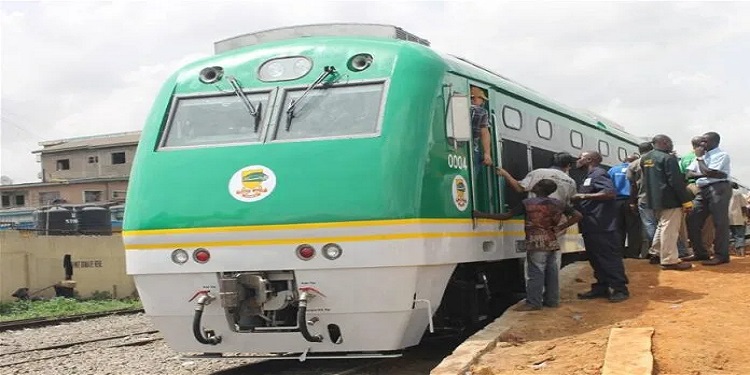The Nigerian Railway Corporation (NRC) has refuted recent media reports suggesting that its narrow-gauge rail lines were dormant, insisting that operations remained active across various routes.
The response comes after media reports (not LEADERSHIP) highlighted concerns about the state of the narrow-gauge network and challenges affecting railway services.
But, in a statement signed by the Deputy Director of Public Relations, Yakub Mahmood, the NRC clarified that its narrow-gauge services, which include the western and eastern lines, were still operational.
“Trains are still running from Apapa and Ido to Ijoko daily as part of the Mass Transit Train Service (MTTS). We also freight containers from Apapa Port and transport cement from Ewekoro to Ibadan and Oshogbo,” the statement read.
Mahmood further noted that the Port Harcourt to Aba mass transit train operates daily except on Mondays.
The corporation stressed that the Federal Government remained committed to revitalising Nigeria’s railway infrastructure through investments in both standard and narrow-gauge lines.
However, media reports have highlighted concerns raised by railway stakeholders about the limited operations on narrow-gauge routes and the need for infrastructure upgrades.
Reports indicated that operational challenges, including a lack of locomotives, vandalisation of rail tracks, and insufficient rolling stock, have hampered the full utilisation of the narrow-gauge lines.
The report also referenced calls by railway workers for the immediate implementation of a 95% salary enhancement approved by former President Muhammadu Buhari in 2022.
Workers reportedly expressed dissatisfaction over the non-payment of the increment and urged the new NRC Managing Director, Mr. Kayode Opeifa, to prioritise resolving the issues.
Opeifa, a former Lagos State Commissioner for Transportation, was recently appointed as the substantive Managing Director of the NRC.
His appointment has raised expectations among railway workers and stakeholders, who hope for swift reforms and improvements in operations.
While the NRC management seeks to assure the public of the railway’s functionality, the reported concerns underscored the need for decisive leadership to address operational gaps and workers’ welfare issues.





